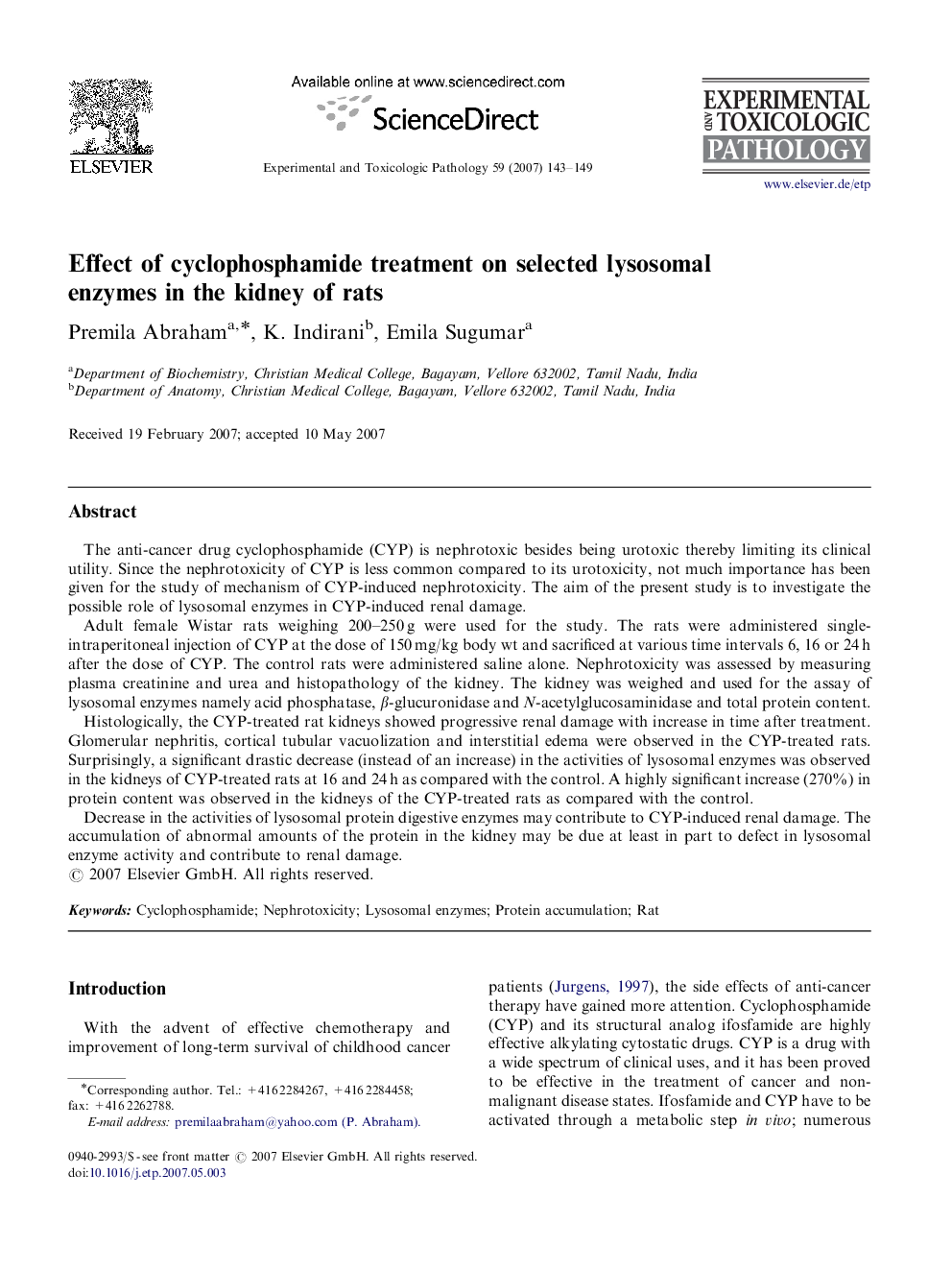| Article ID | Journal | Published Year | Pages | File Type |
|---|---|---|---|---|
| 2499841 | Experimental and Toxicologic Pathology | 2007 | 7 Pages |
The anti-cancer drug cyclophosphamide (CYP) is nephrotoxic besides being urotoxic thereby limiting its clinical utility. Since the nephrotoxicity of CYP is less common compared to its urotoxicity, not much importance has been given for the study of mechanism of CYP-induced nephrotoxicity. The aim of the present study is to investigate the possible role of lysosomal enzymes in CYP-induced renal damage.Adult female Wistar rats weighing 200–250 g were used for the study. The rats were administered single-intraperitoneal injection of CYP at the dose of 150 mg/kg body wt and sacrificed at various time intervals 6, 16 or 24 h after the dose of CYP. The control rats were administered saline alone. Nephrotoxicity was assessed by measuring plasma creatinine and urea and histopathology of the kidney. The kidney was weighed and used for the assay of lysosomal enzymes namely acid phosphatase, β-glucuronidase and N-acetylglucosaminidase and total protein content.Histologically, the CYP-treated rat kidneys showed progressive renal damage with increase in time after treatment. Glomerular nephritis, cortical tubular vacuolization and interstitial edema were observed in the CYP-treated rats. Surprisingly, a significant drastic decrease (instead of an increase) in the activities of lysosomal enzymes was observed in the kidneys of CYP-treated rats at 16 and 24 h as compared with the control. A highly significant increase (270%) in protein content was observed in the kidneys of the CYP-treated rats as compared with the control.Decrease in the activities of lysosomal protein digestive enzymes may contribute to CYP-induced renal damage. The accumulation of abnormal amounts of the protein in the kidney may be due at least in part to defect in lysosomal enzyme activity and contribute to renal damage.
